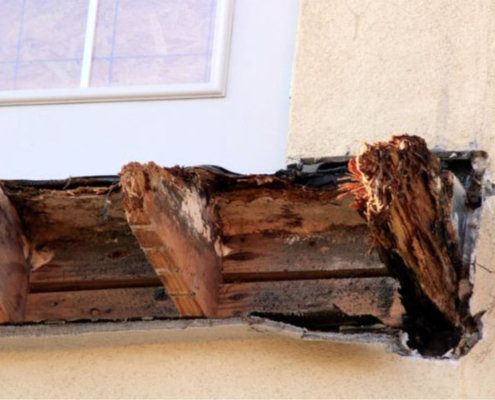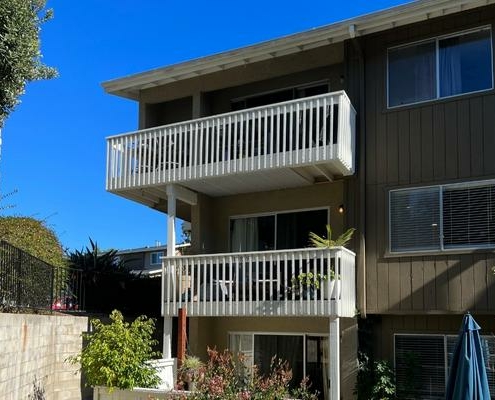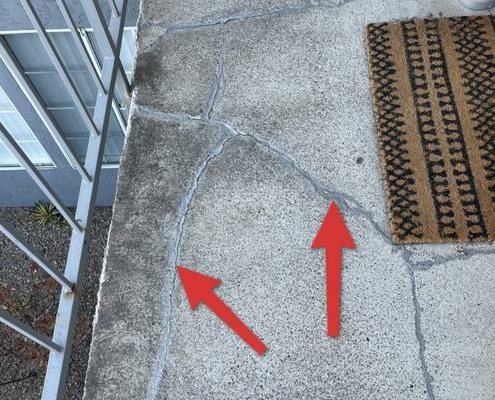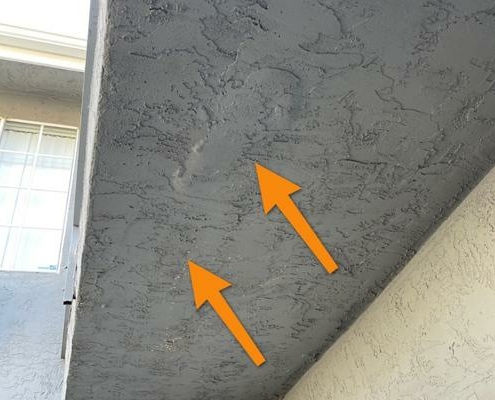What are the California required SB-721 and SB-326 Balcony, Deck, & Stair Inspections?
• In 2015 a group of UC Berkeley students were outside on an apartment balcony and the balcony gave way killing 6 people, and injuring 7 others. This balcony failed because the floor joists holding up the balcony were rotted out because of dry rot. This dry rot, which is a type of wood fungus, was caused by moisture entering the joist space through holes and cracks in the deck surface above.
• As a result of this tragedy, in 2018, the California legislature passed Senate Bills – SB-721 (for apartments) and SB-326 (for condominiums) known as The Balcony Inspection Bills.
• SB-721 – Pertains to apartment buildings.
• SB-326 – Pertains to condominium buildings.
• Both of these bills require apartment owners or condominium owners to have their elevated balconies, elevated walkways, and stairways inspected by a licensed professional every 6 years for apartments and every 9 years for condominiums.
• If the inspection finds that there are deficiencies in the water proofing of the walking surface above the floor joists, or if there is dry rot or other damage to the structural members (floor joists), then corrective action must be taken to repair the floor joists, or seal up the walking surface above the joists to make it water tight, so that there is no water intrusion into the joist space.
• Water that leaks into the joist space promotes fungal growth on the wood joists, known as dry rot, which deteriorates the floor joists leading to possible failure.
• SB-721 and SB-326 also require that the stairs are to be inspected for structural integrity.
• Click here to see California Senate Bill SB721 regulations.
• Click here to see California Senate Bill SB326 regulations.
Berkeley Balcony Disaster
What do the SB-721 and SB-326 inspections involve?
• Examining the condition of the waterproofing system used on the walking surface of the balcony or elevated walkways, to insure that water is not entering into the joist space which can cause dry rot of the structural floor joists.
• Assessment of the structural integrity of the elevated walkways and balconies
• Assessment of the structural integrity of the stairways
What’s in the SB-721(for Apartments) or SB-326 (for Condominiums) Reports?
• The SB 721 (for apartments) and SB 326 (for condominiums) reports will be prepared documenting the existing conditions of the elevated balconies, decks and stairways.
• The report will contain pictures and identify any deficiencies which will require repairs.
• If the problems found in the inspection are non – life threatening, then the building owner has 120 days to secure a permit to make repairs and another 120 days to make the repairs.
• If the inspection finds that the condition of the elevated structure is life threatening, the building owner must immediately stop access to this section of the elevated walkway or balcony, with repairs made immediately.
• If problems are found during the SB 721 or SB 326 inspection, which requires repairs, a follow-up inspection will be ordered at the owner’s discretion, to verify and document that repairs have been made. We will then prepare an amended report which will document that repairs are complete and that the building passes the SB 721 or SB 326 inspection requirements.
• If you have questions regarding either the SB 721 (apartments) or the SB 326 (condominiums) balcony and deck inspection call Tom Nelson – 619-679-0457!
Who is required to have an SB-721 or SB-326 Inspection?
• California law requires that all apartments or condominiums which have 3 or more units, and that have exterior elevated elements (balconies, decks, and stairs) that are greater than 6 ft above ground level
When and how often is the SB-721 or SB-326 Inspection required?
• The first inspection is required no later than Jan 1, 2026
• Follow-up inspections are required every 6 years for apartments and every 9 years for condominiums
Who to contact about your SB-721 or SB-326 Inspection?
CALL FOR RAPID PRICE QUOTE AND SCHEDULING
619-679-0457




